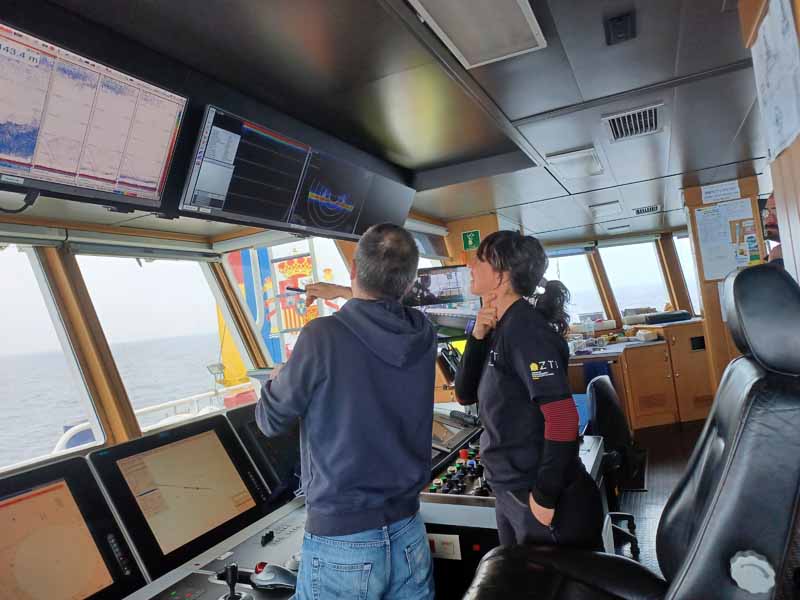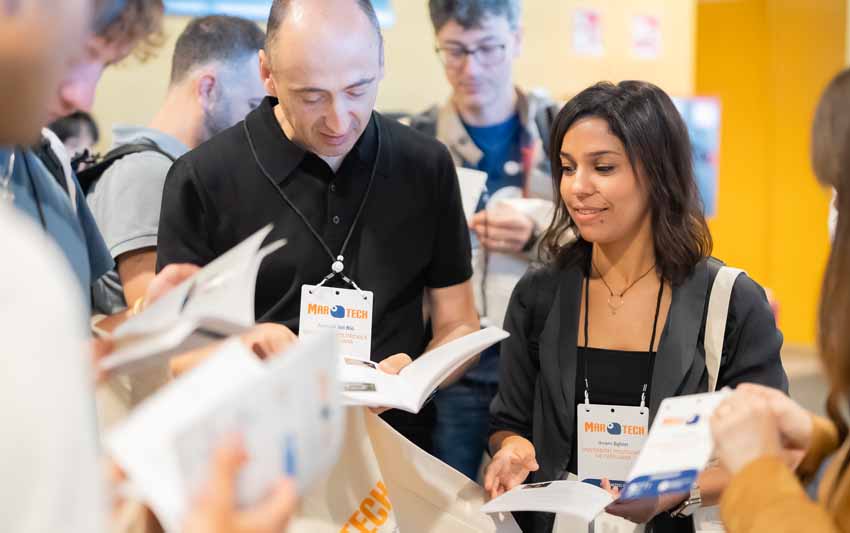AZTI develops a good practices guide for applying artificial intelligence in the fisheries sector at the request of the European Parliament
Últimas noticias
Una mirada LGTBIQ+ al reino animal
Circular Economy in Action: Valorisation of By-products through Projects like PRIMA NEWFEED
Strategic Perspectives: Highlights from the Food4Future World Summit for Business Leaders
- The AZTI technology centre, in collaboration with the University Institute of European Studies “Salvador de Madariaga” (IUEE) of the University of A Coruña and at the request of the European Parliament, has produced a report on legislative keys for the use of artificial intelligence in fishery activities, based on the new proposal for the European Union’s Artificial Intelligence Act.
- The document highlights how artificial intelligence can help deal with challenges associated with the sustainability of the fisheries sector and provides recommendations for the appropriate use of artificial intelligence systems.
- Representatives of both organisations presented the guide to the European Parliament’s Fisheries Committee yesterday.
Sukarrieta, 14 June 2022- Artificial intelligence has a daily impact on the life and activities of people, companies and government agencies. However, it is feared that its use could be not only beneficial, but also invasive. For that reason, the European Commission proposed in 2021 the Artificial Intelligence ACT (AI Act), a pioneering new legal framework meant to regulate the use of such technologies in countries of the European Union, to pave the way to their safe and efficient implementation.
Fisheries is one of the sectors that must accordingly take this new regulation into consideration. To provide its main actors with information about this new legal ecosystem, the AZTI technology centre and the IUEE, has at the request of the European Parliament led a report that will serve as a good practices guide for proper application of these technological solutions in the fishing industry.
The work presented yesterday by the AZTI and IUEE to the European Parliament’s Committee on Fisheries first reviewed the proporsed new legislation on artificial intelligence and its implications for the fisheries sector, also indicating the areas of fishing where it is most used at present as well as future prospects.
“We explain the regulations and technology for people who are not experts, whereby the document may be of interest for anyone who wants to know more about AI and the new legislation, even if they do not have much technical knowledge,” explains Dr. Jose A. Fernandes, an AZTI expert on artificial intelligence and coordinator of the study.
The report particularly highlights how the use of this technology can bring benefits to the sector and help it face the challenges associated to sustainability, while safeguarding the fundamental rights and integrity of European citizens.
“For the fisheries sector it is a good compilation of the state of the art and of middle and long term expectations, helping discern opportunities for improvement of fishing activities,” Dr. Fernandes adds.

Applications and recommendations for applying artificial intelligence in the fisheries sector
The analysis produced by AZTI and the IUEE lists potential applications of artificial intelligence techniques that could currently be used in the fisheries sector, from the processing of biological samples to improved energy efficiency of fishing boats, along with the classification of catches by species and size, among others.
The report also provides a list of policy action recommendations for the proper use of AI systems in the fisheries sector.
Some suggestions that stand out in the study concern the modification of AI legislation proposals to include specific mentions of the fisheries sector and the promotion of talent.
“Fisheries experts with interdisciplinary training and artificial intelligence skills are needed, to help such people find employment opportunities in private enterprise and attract them through information programmes and incentives in line with their capacities,” the AZTI researcher stresses.
The document also sets out recommendations associated to trust, such as the design of security protocols to ensure the anonymity of private information, the development of good AI practices and standards, and regulation of the technology suppliers’ role, assuring a certain degree of experience in the industry to prevent the development of untrustworthy and unsuitable intelligence systems.
Another recommendation of the AZTI report concerns collaboration among interested parties through financing programmes, specialized centres, multidisciplinary networks or the development of AI good practice guidelines in fisheries. It shows that technological research and digitalization of vessels are keys to driving the integration of artificial intelligence in fishing gear and strategies.
Financed by the European Parliament, this report was led by AZTI expert personnel and counted the collaboration of legal experts from the IUEE.







